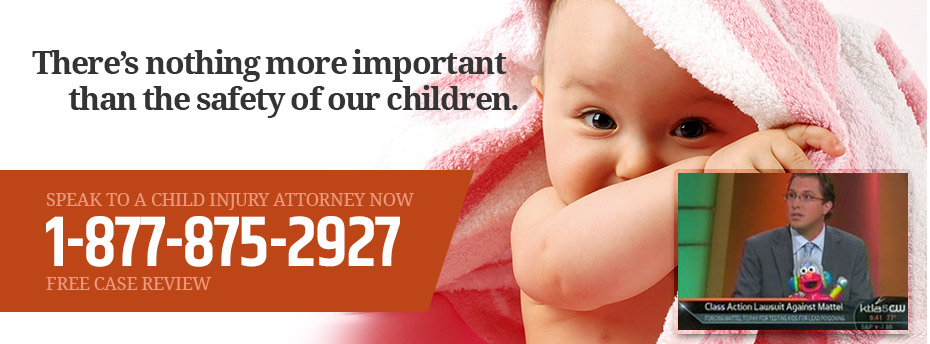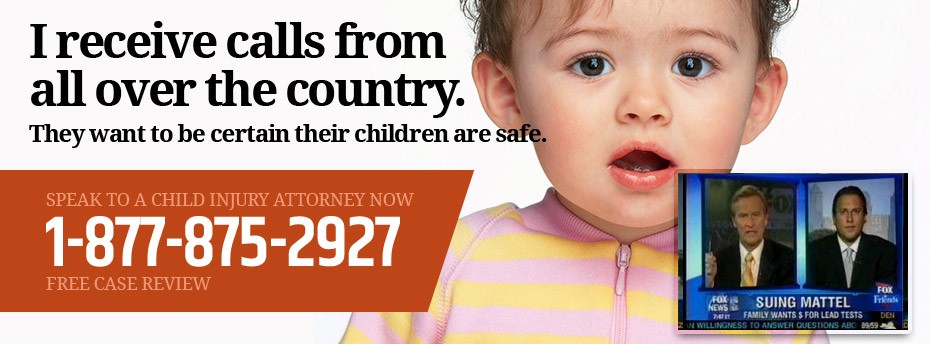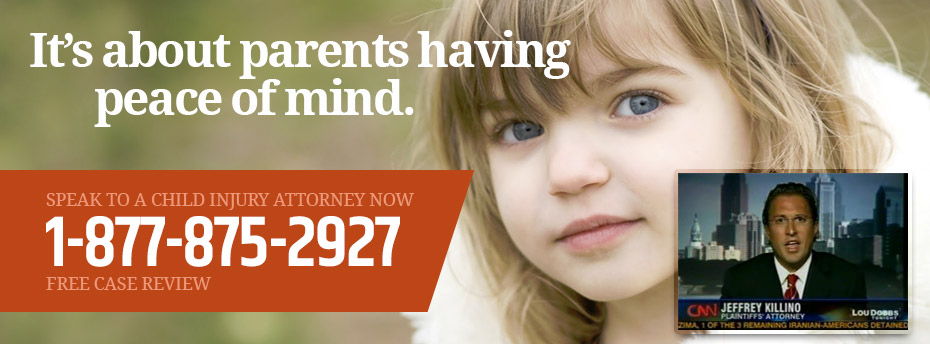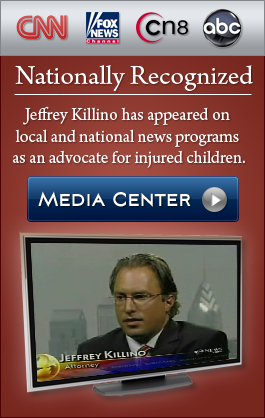After reports of infant deaths, the U.S. Consumer Product and Safety Commission (CPSC) on April 12, 2019 recalled about 4.7 million Fisher-Price Rock ‘n Play sleepers. Tragically, at least 32 infant fatalities have linked to this product since Fisher-Price introduced the Rock ‘n Play sleeper in 2009. According to the CPSC, these deaths happened after the babies rolled from their back to their stomach or side while unrestrained, or under other circumstances.
On its website, Fisher-Price said, “…given the reported incidents in which the product was used contrary to safety warnings and instructions, we’ve decided in partnership with the Consumer Product Safety Commission (CPSC), that this voluntary recall is the best course of action.
Warnings before Recall
On April 5, one week before recall, the CPSC and Fisher-Price issued a safety alert, warning consumers to stop using the sleeper when infants turn three months old or “as soon as an infant exhibits rollover capabilities.” It confirmed 10 deaths.
On April 8, Consumer Reports (CR) published the results of its investigation into the safety of the Rock ‘n Play sleeper, finding it was linked with 32 infant deaths between 2011 and 2018. The President of CR said that Fisher-Price and the CPSC knew about the Rock ‘n Play sleeper deaths for years and could have taken action to avoid this unnecessary tragedy. Fisher-Price confirmed to CR that it is aware of approximately 32 fatalities since marketing and selling the Rock ’n Play Sleeper.
Three days before the April 12 recall, the American Academy of Pediatrics (AAP) issued a news release calling on the CPSC to recall the “deadly” sleeper. “When parents purchase a product for their baby or child, many assume that if it’s being sold in a store, it must be safe to use. Tragically, that is not the case,” Kyle Yasuda, president of the American Academy of Pediatrics told the Washington Post.
Back in May 2018, the CPSC alerted caregivers to use restraints with inclined sleepers. https://www.cpsc.gov/content/cpsc-consumer-alert-caregivers-urged-to-use-restraints-with-inclined-sleep-products?mod=article_inline
In January 2018, a consumer’s review on Amazon warned parents about the product: “I lost my son in this horrible contraption December 22 . . . this should not be marketed as a sleeper!” When asked by CR about this incident, Fisher-Price confirmed that this “case” was one of the 10 cited by the company in the joint alert issued with the CPSC on April 5.
The Rock ‘n Play sleeper is not sold in Australia. Regulators wrote to Mattel that the product “is at odds with widely accepted and promoted best practices that these types of products should not be used as an infant bedding alternative.” They added that, because of sleeper’s angle, “babies’ heads can easily fall forward in a way that obstructs their airways.” Canada reclassified the sleeper to a “soother”, calling it the Rock ’n Play Soothing Seat. In February 2011, Health Canada’s health officials wrote to Mattel their concerns, “In light of the Safe Sleep recommendations of Health Canada, the Public Health Agency of Canada, and the Canadian Pediatric Society.”
If your child has been injured or killed in a defective sleeper accident, you may be entitled to recover damages from the party or parties responsible. Child-injury lawyer Jeffrey Killino is dedicated to helping children and families obtain the compensation they deserve. Contact Jeffrey Killino at 877-875-2927 to learn about your legal options.
Sleeper Recommendations
The AAP’s safe sleep recommendations say babies should be placed alone on a bed with a firm, flat surface with no extra bedding. As well, medical experts told Consumer Reports that babies should be placed flat on their back and free of soft bedding—and not at an incline—to minimize the risk of accidental suffocation. This advice goes back to 1994, before the Rock ‘n Play sleeper was created. At that time, the AAP and other groups introduced the “Safe to Sleep” campaign to reduce the risk of SIDS and other sleep-related causes of death.
Further, the AAP does not recommend products for routine sleep that require restraining a baby, especially if that product also rocks, because a baby could roll or turn into an unsafe position and be incapable of moving, leading to suffocation or strangulation. According to AAP, “We don’t recommend that babies are placed to sleep with their heads elevated because that is a position that would be subject to accidental suffocation [and] strangulation in bed.”
Those recommendations do not describe the Rock ‘n Play sleeper.
Research shows that a baby’s oxygen level can drop when sleeping at an incline in a car seat, and medical experts warn that the straps can lead to strangulation.
Fisher-Price said its sleeper met various safety standards, adding that it continued to stand by the safety of the product. Also, the Fisher-Price website says its product is for “naptime and nighttime,” and the product’s packaging includes “Inclined sleeper designed for all-night sleep.”
Although sudden infant deaths can occur with no clear cause and can involve a number of factors, experts warned that this particular product, and other infant-inclined sleep products, pose an increased risk of infant death. (On April 11, Consumer Reports linked four more deaths to inclined sleepers from the company Kids II, and called for their recall.)
Nationally-recognized child injury attorney Jeffrey Killino has handled a wide variety of defective product cases, including those arising out of injuries and deaths caused by cribs. Our experienced attorneys, paralegals, and investigators share the goal of helping injured families win the compensation they need and the justice they deserve. If your child has been hurt or killed in a preventable accident caused by negligence or a defective product, call us today at 1-877-875-2927.
Refunds or Product Liability Action
Fisher-Price adds: “Consumers should stop using the Rock ‘n Play Sleeper and can contact Fisher-Price immediately for a refund or voucher.”
Consumer Reports state that Fisher-Price and Mattel (its parent company) misled parents and caregivers by marketing this product as safe for sleep, and they owe it to their customers to give them full refunds, instead of partial refunds or company vouchers.
Infant Injury
If this sleeper’s defect is a cause of your child’s injuries, a product-liability action allows a plaintiff to recover damages from the manufacturer or anyone in the chain of the product’s distribution if the plaintiff can prove, by a preponderance of the evidence, that the Fisher-Price sleeper was defective and that the defect was a cause of the child’s injuries or death.
Generally, if a plaintiff can show that the sleeper was being used in the manner intended when a child personal injury occurred, and that a design or manufacturing defect was a cause of the injury, the plaintiff will prevail in a strict liability suit. Defendants may also be found liable under a strict liability if the injuries sustained by a child were caused by the manufacturer’s failure to warn of dangers associated with its use.
Wrongful Death
Product defects such as cribs have been known to cause children to suffer suffocation or strangulation injuries that lead to the infant’s death. If a child dies as a result of a defective-sleeper injury, the child’s parents may bring a wrongful death action against the party or parties responsible. A wrongful death action is brought by a decedent’s survivors on behalf of the survivor. The damages recoverable, therefore, are the same damages a child would have been able to recover if he or she survived.
Defective Rock ‘n Play Sleeper?
CPSC told CR in an emailed statement before the recall, “At this time, we are focusing on deaths associated with the rollover hazard, though we acknowledge that we are aware of other deaths that have occurred in the Rock ’n Play.” The statement also said that the agency is “continuing to evaluate the product and investigate whether it contains a defect . . . and if the evidence indicates a need for a recall, we will take that step.”
Mattel, which owns Fisher-Price, had about $4.5 billion in sales in 2018.
Currently, the CPSC, does not have a mandatory safety standard for infant inclined sleep products.
Fisher-Price confirmed to CR that the company is aware of approximately 32 fatalities since the 2009 introduction of the Rock ’n Play Sleeper, including the 10 noted in the joint release with the CPSC. Fisher-Price told CR that the company does not believe that “any deaths have been caused by the product,” citing “the many situations where a medical/health condition was identified as the cause of death, and/or those in which the product was clearly used in a manner contrary to the safety warnings and instructions.”
Attorney Jeffrey Killino is not only an experienced lawyer — he is also a child advocate. When a child injury or death occurs, whether it is a because of faulty sleeper, crib or other product, he has the know-how and resources to guide you through the legal process to get what you and your family are entitled to. If your child has suffered a traumatic injury because of a company’s negligence, Jeffrey Killino can help. Contact child crib death attorney Jeffrey Killino today at 877-875-2927.





